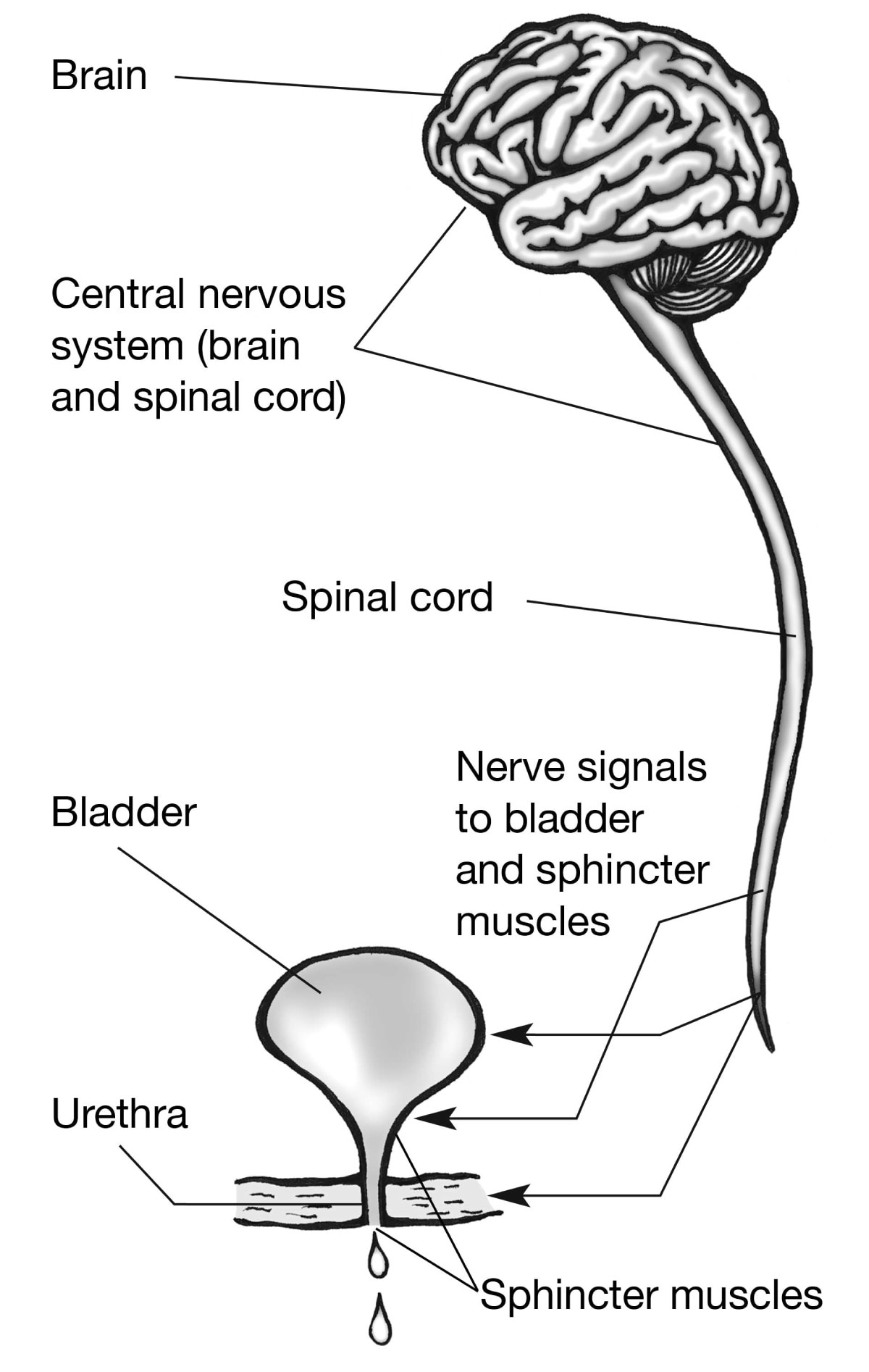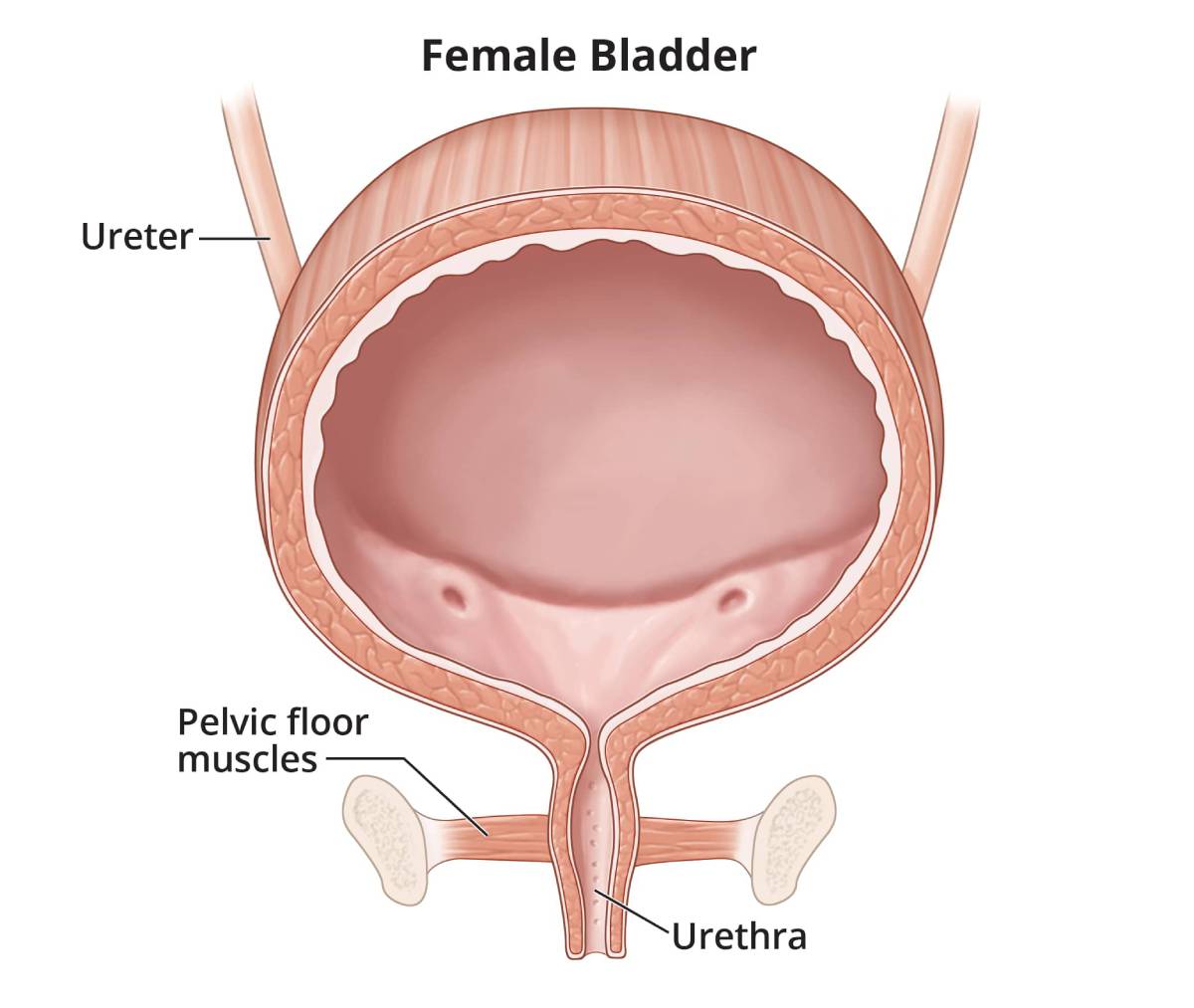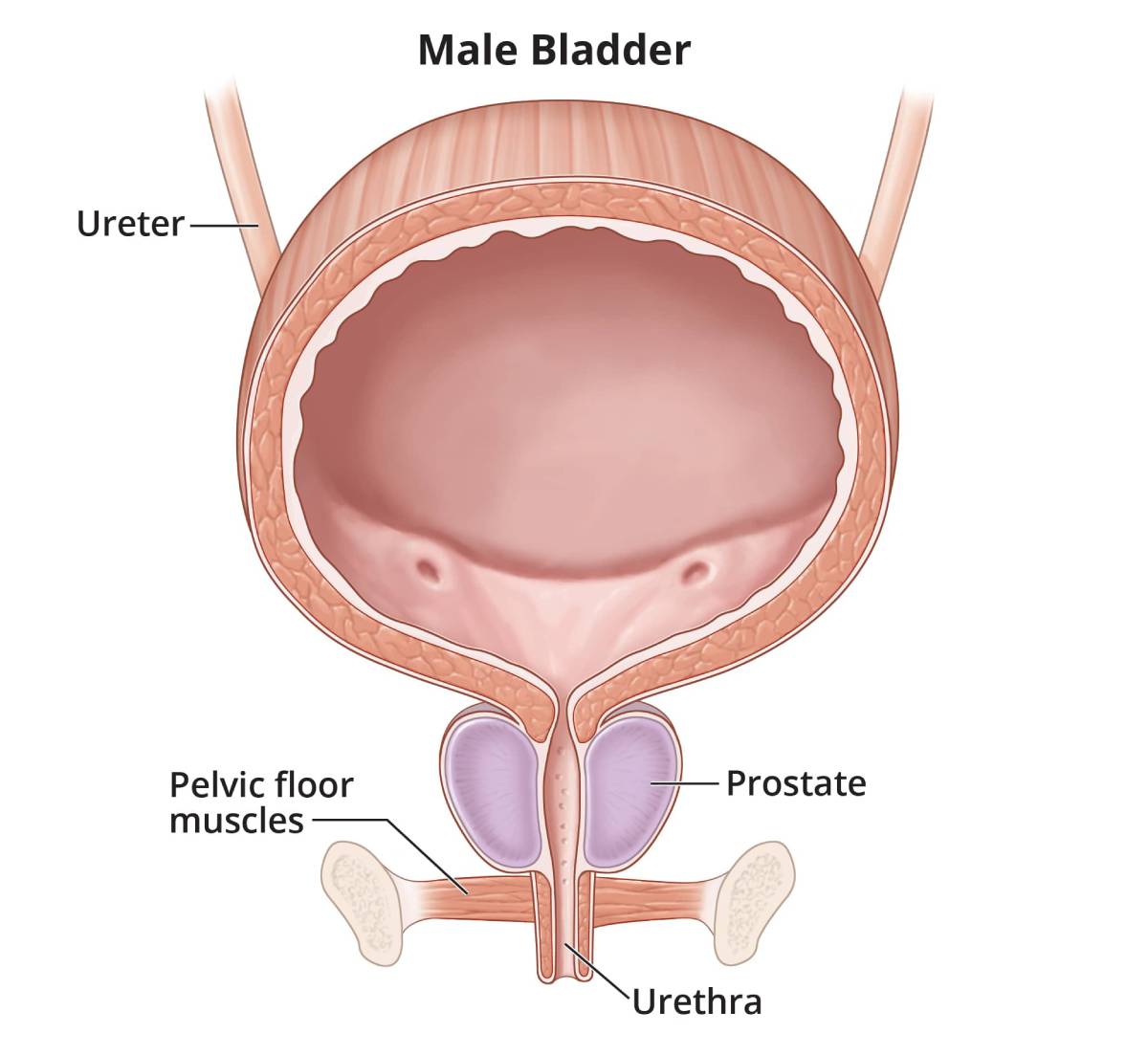Symptoms & Causes of Bladder Control Problems (Urinary Incontinence)
In this section:
- What are the symptoms of bladder control problems?
- When should I see a health care professional?
- What causes bladder control problems?
- What else causes bladder control problems in women?
- What else causes bladder control problems in men?
What are the symptoms of bladder control problems?

Signs and symptoms of urinary incontinence (UI) can include
- leaking urine during everyday activities, such as lifting, bending, coughing, or exercising
- being unable to hold in urine after feeling a sudden, strong urge to urinate
- leaking urine without any warning or urge
- being unable to reach a toilet in time
- wetting your bed during sleep
- leaking during sexual activity
When should I see a health care professional?
See a health care professional if you have symptoms of a bladder problem, such as trouble urinating, a loss of bladder control, waking to use the bathroom, pelvic pain, or leaking urine.
Bladder problems can affect your quality of life and cause other health problems. Your health care professional may be able to treat your UI by recommending lifestyle changes or a change in medicine.
Seek care right away
See a health care professional if you
- can’t pass urine or empty your bladder, which is a sign of urinary retention
- urinate too often—eight or more bathroom visits a day—also called frequency
- see blood in your urine, called hematuria
- have bladder infection symptoms, including painful urination
These symptoms can signal a serious health problem, including inflammation of the bladder, also called cystitis, or even bladder cancer.
What causes bladder control problems?
Health changes and problems, including those with your nervous system, and lifestyle factors can cause or contribute to UI in women and men.
Health changes and problems
Health changes and problems that can lead to UI, include
- aging
- bladder infection
- constipation
- birth defects
- blocked urinary tract—from a tumor or kidney stone
- chronic, or long-lasting, cough
- diabetes
- overweight or obesity
- genitourinary fistulas
Some health problems can be short-term, like a urinary tract infection or constipation, and can cause temporary incontinence.
Nerve damage
Problems with the nervous system are common causes of UI. Nerves carry messages from the bladder to the brain to let it know when the bladder is full. Nerves also carry messages from the brain to the bladder, telling muscles either to tighten or release. The brain decides if it’s an acceptable time to urinate. Functional incontinence can occur when there is a problem getting the messages from your brain to a part of your urinary tract—usually the bladder, the sphincters, or both.
 Nerves carry signals from your brain to your bladder and sphincter muscles.
Nerves carry signals from your brain to your bladder and sphincter muscles.
Bladder nerves and muscles can be damaged or affected by
- diabetes
- vaginal childbirth
- surgery for prostate cancer
- stroke
- Parkinson’s disease
- multiple sclerosis
- Alzheimer’s disease
- brain or spinal cord injury
- anxiety
- heavy metal poisoning
Triggers that may cause a sudden, strong urge to urinate can include drinking or touching water, hearing running water, or being in a cold environment, such as reaching into the freezer at the grocery store.
Lifestyle factors
Lifestyle factors that make women and men more likely to experience UI include
- eating habits, such as eating foods that cause constipation
- drinking habits, such as drinking alcohol or caffeinated or carbonated beverages
- certain medicines
- physical inactivity
- smoking
Temporary incontinence is usually a side effect of a medicine or short-term health condition. Temporary incontinence can also be a result of eating and drinking habits, including using alcohol or caffeine.
What else causes bladder control problems in women?
Certain life events and health problems can lead to stress incontinence in women by weakening the pelvic floor muscles
- pregnancy and childbirth
- trauma or injury, such as sexual assault
- pelvic organ prolapse, such as a cystocele
- menopause
Weak pelvic floor muscles can make it hard for your bladder to hold urine in during stress incontinence. Stress incontinence occurs when an action—coughing, sneezing, laughing, or physical activity—puts pressure on your bladder and causes urine to leak. A weak pelvic floor can also cause fecal incontinence, or bowel control problems.

What else causes bladder control problems in men?
Men sometimes develop UI along with prostate problems.
Prostate problems
Men have a prostate gland that surrounds the opening of the bladder. The prostate gets bigger as a man grows older. When a man’s prostate gets too big but isn’t cancerous, he has a condition called prostate enlargement, or benign prostatic hyperplasia (BPH). Men with an enlarged prostate may have
- problems starting to urinate
- a slow urine stream
- problems fully emptying the bladder
Treatment for BPH can lead to stress incontinence, but it is usually temporary.
Men who have a history of radiation or surgery for prostate cancer may have short-term or long-term UI. Surgery, radiation, or other prostate cancer treatments can lead to nerve damage, bladder spasms, or stress incontinence. Bladder control problems after prostate cancer treatment can get better over time.

This content is provided as a service of the National Institute of Diabetes and Digestive and Kidney Diseases
(NIDDK), part of the National Institutes of Health. NIDDK translates and disseminates research findings to increase knowledge and understanding about health and disease among patients, health professionals, and the public. Content produced by NIDDK is carefully reviewed by NIDDK scientists and other experts.

